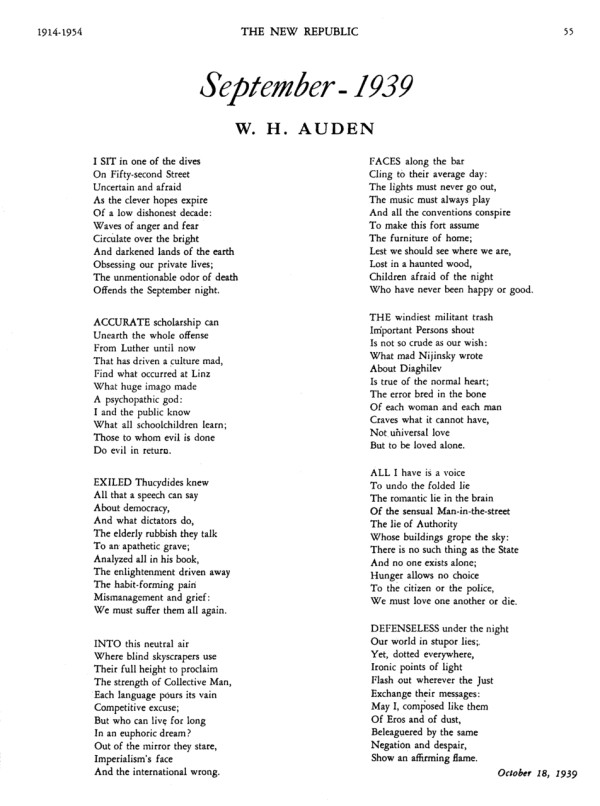Tonight I can write the saddest lines.
Write, for example, “The night is starry
The night wind revolves in the sky and sings.
I loved her, and sometimes she loved me too.
I kissed her again and again under the endless sky.
How could one not have loved her great still eyes.
To think that I do not have her. To feel that I have lost her.
And the verse falls to the soul like dew to the pasture.
The night is starry and she is not with me.
My soul is not satisfied that it has lost her.
My heart looks for her, and she is not with me.
We, of that time, are no longer the same.
My voice tries to find the wind to touch her hearing.
Her voice, her bright body. Her infinite eyes.
Love is so short, forgetting is so long.
my soul is not satisfied that it has lost her.
and these the last verses that I write for her.
(Translated by W.S. Merwin. From Twenty Love Poems and a Song of Despair, first published in 1924, when the poet was about 20 years old. Via.)
